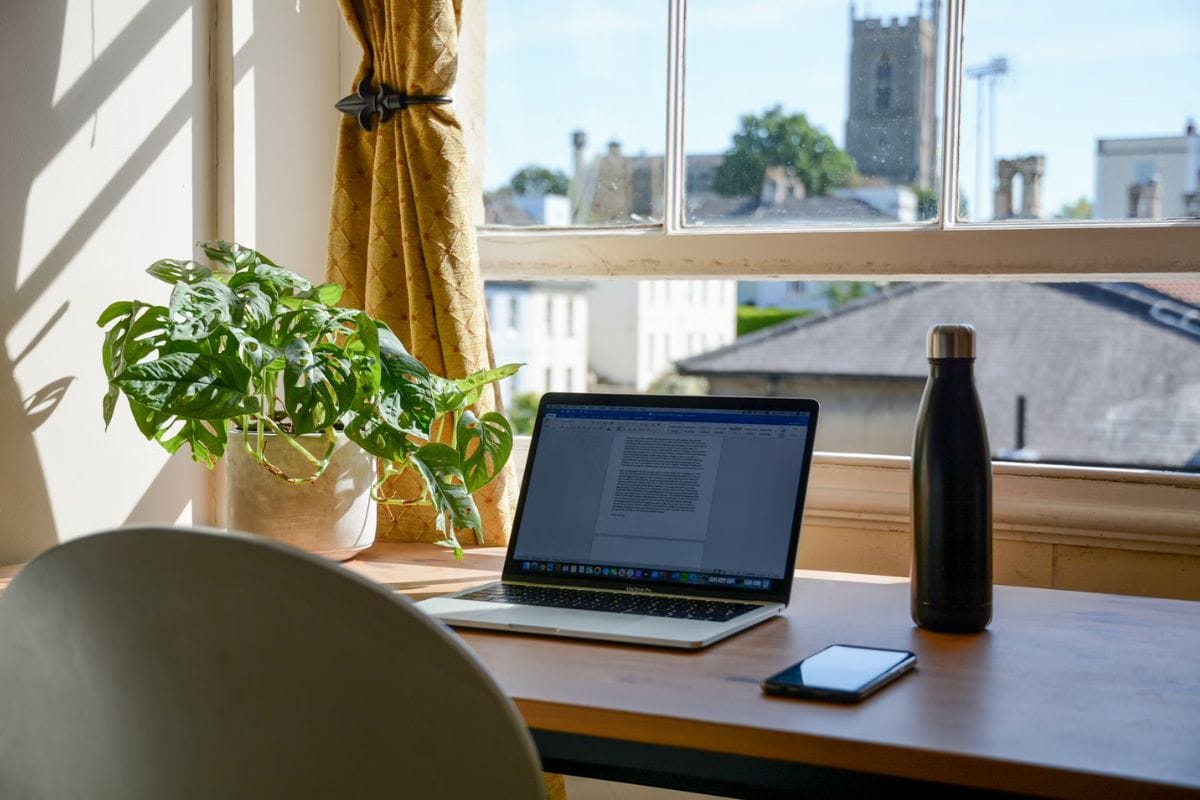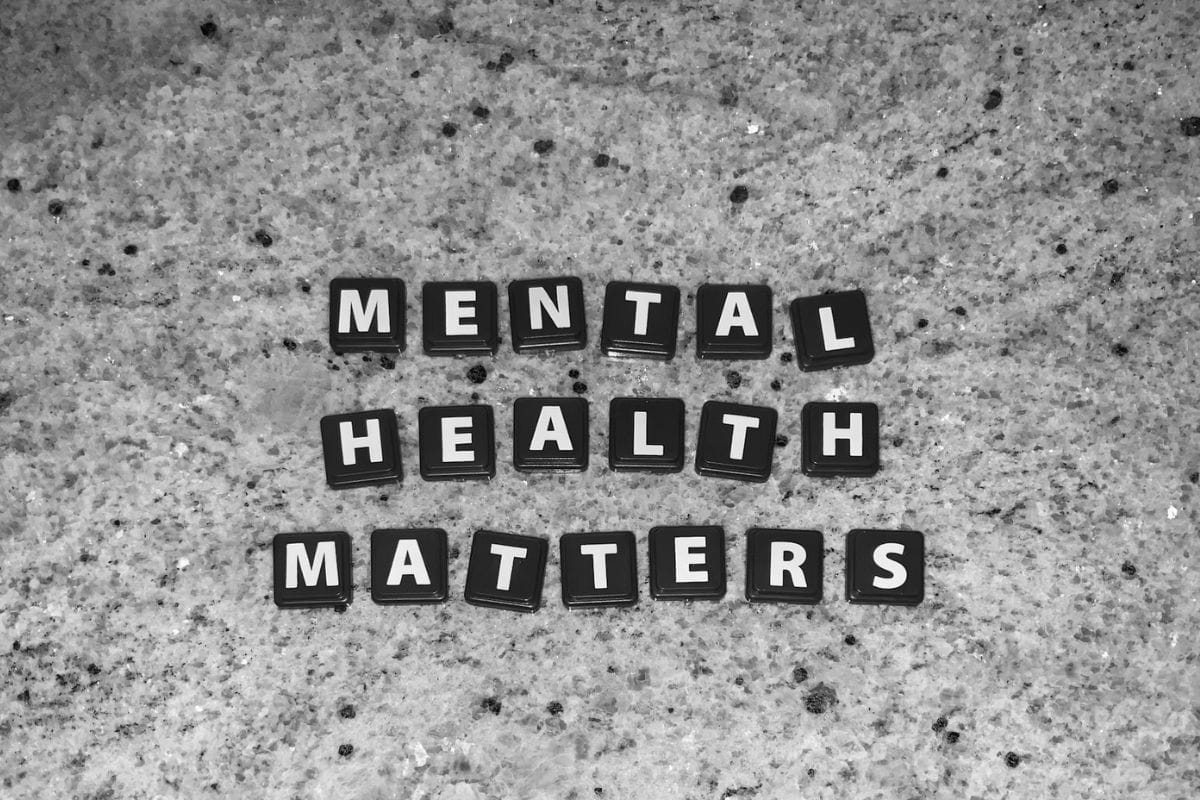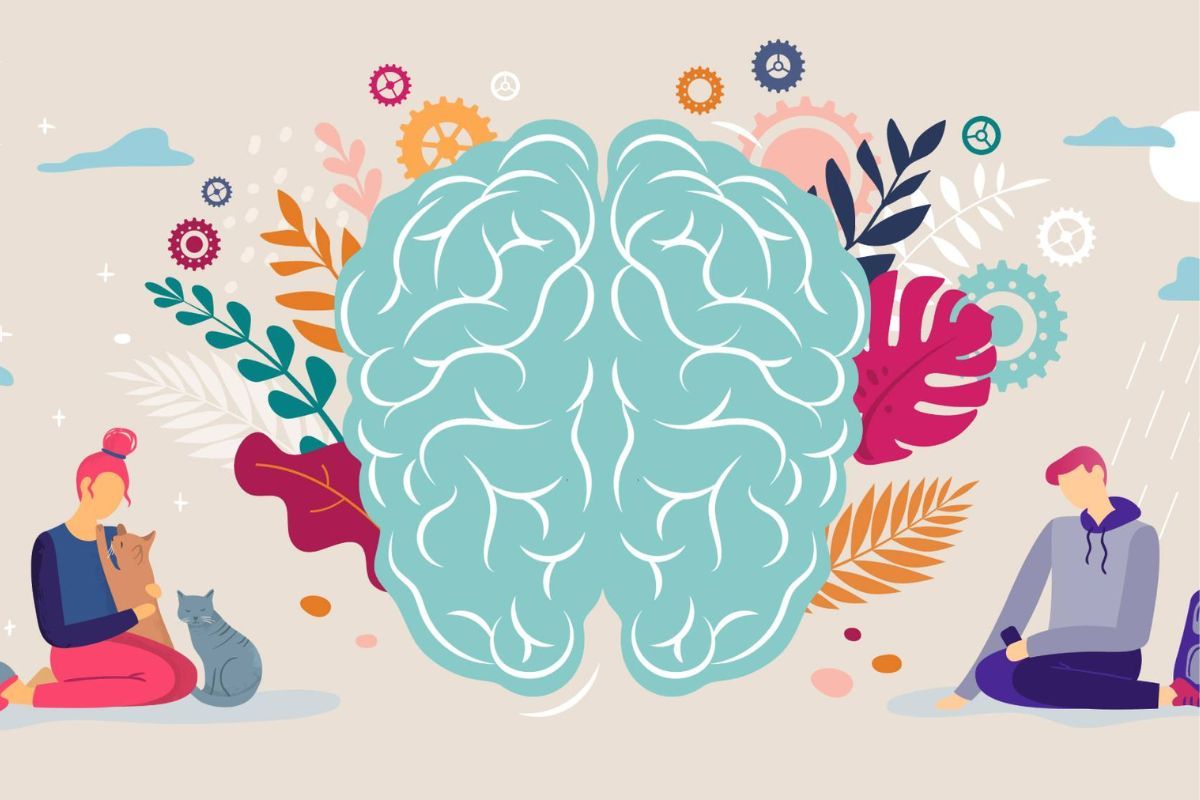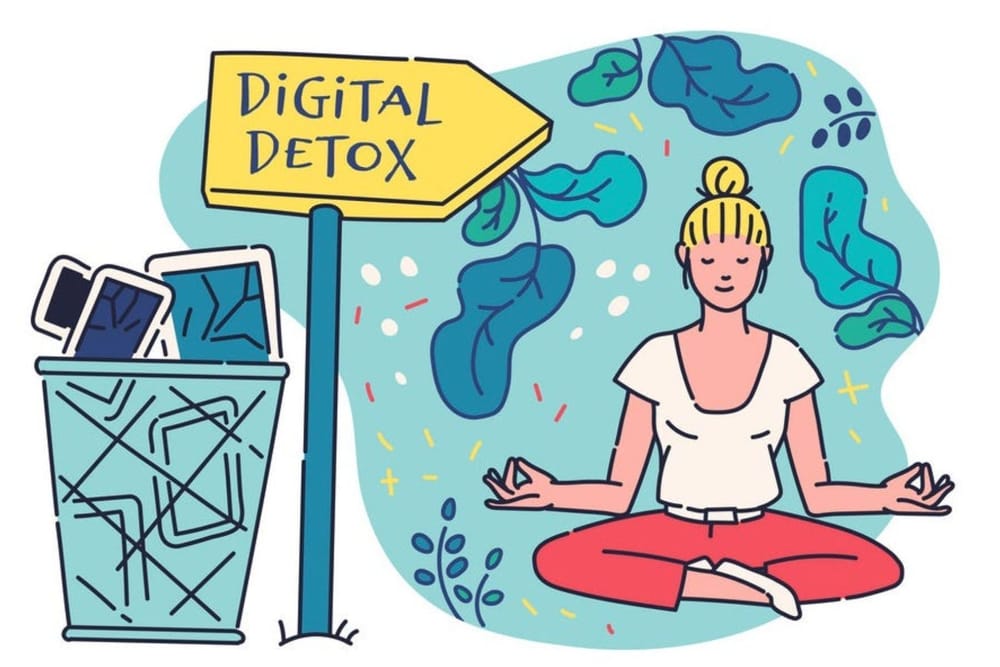In our modern world, technology is an integral part of our daily lives. From the moment we wake up to the time we go to bed, we are constantly connected. Whether it's checking emails, scrolling through social media, or binge-watching our favorite shows, our screens are always in front of us. While technology has undoubtedly made our lives easier in many ways, it's also led to a phenomenon known as digital overload. This constant connectivity can be overwhelming and, in many cases, detrimental to our well-being. That's where the concept of digital detox comes in.
The Need for a Digital Detox

Digital detox refers to a period when a person refrains from using electronic devices such as smartphones, computers, and tablets. It's an opportunity to reduce stress and focus more on interaction with the physical world. But why is it necessary?
Mental Health Benefits and Social Comparison: Constant exposure to social media can lead to a phenomenon known as "social comparison," where individuals compare their lives, achievements, and appearances to the curated and often idealized representations shared by others online. This can foster feelings of inadequacy, low self-esteem, and negative body image, ultimately contributing to mental health issues like depression and anxiety.
Taking a digital detox allows individuals to break free from this cycle of constant comparison and focus on their own lives, accomplishments, and intrinsic values without the distorted lens of social media. It provides an opportunity to cultivate self-acceptance, gratitude, and a healthier perspective on life, promoting overall mental well-being.
Improved Sleep: The blue light emitted by screens can interfere with our sleep patterns. By reducing screen time, especially before bed, can improve the quality of our sleep, which in turn enhances our overall health.
Enhanced Productivity: While technology can aid productivity, it can also be a major distraction. A digital detox allows us to focus better on tasks without the constant interruptions from notifications and social media.
Better Relationships: Being constantly glued to our screens can negatively impact our relationships with family and friends. A digital detox encourages more face-to-face interactions, which can strengthen these bonds.
How to Start Your Digital Detox?

Going on a digital detox doesn't mean you have to completely disconnect from technology forever. It’s about finding a balance that works for you. Here are some practical steps to get started:
- Set Clear Goals: Define what you want to achieve with your digital detox. It could be spending more time with family, reducing stress, or improving sleep. Having clear goals will keep you motivated.
- Create Tech-Free Zones: Designate certain areas in your home where technology is off-limits. For example, the dining room can be a place where everyone enjoys meals without their phones.
- Schedule Screen-Free Time: Allocate specific times during the day when you will not use any digital devices. This could be an hour in the morning or before bed. Gradually increase this time as you get more comfortable.
- Engage in Offline Activities: Find activities that don’t involve screens. This could be reading a book, going for a walk, cooking, or picking up a new hobby. The goal is to engage in activities that help you unwind and relax.
- Use Technology Mindfully: When you do use technology, be mindful of how it affects you. Avoid mindless scrolling and be intentional with your screen time. Use apps and tools that help you track and limit your usage.
The Benefits of a Digital Detox
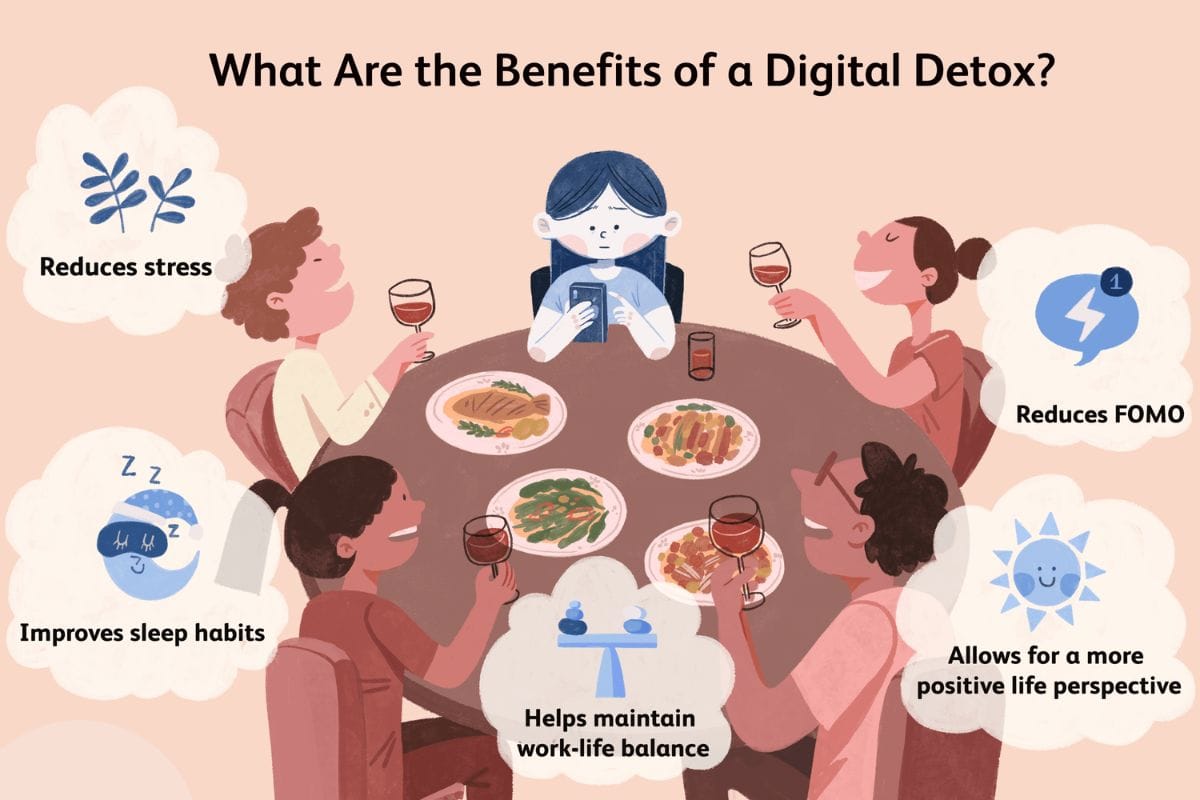
Once you start your digital detox, you'll begin to notice several positive changes in your life. Here are some benefits you can look forward to:
- Reduced Stress and Anxiety: Taking a break from constant notifications and the pressure to stay updated can significantly reduce stress and anxiety levels. You'll find yourself feeling more relaxed and at peace.
- Better Focus and Productivity: Without the constant distractions of your phone or computer, you’ll be able to concentrate better on tasks. This improved focus can lead to increased productivity and a greater sense of accomplishment.
- Improved Physical Health: Spending less time on screens means you’ll have more time for physical activities. Whether it’s going for a run, practicing yoga, or simply taking a walk, these activities are great for your physical health.
- Enhanced Relationships: By reducing screen time, you’ll have more opportunities to connect with loved ones. Engaging in conversations, playing games, or simply spending quality time together can strengthen your relationships.
- Greater Appreciation for the Present: A digital detox encourages you to live in the moment and appreciate the world around you. You’ll find joy in the simple things and develop a greater sense of mindfulness.
Challenges of a Digital Detox and How to Overcome Them
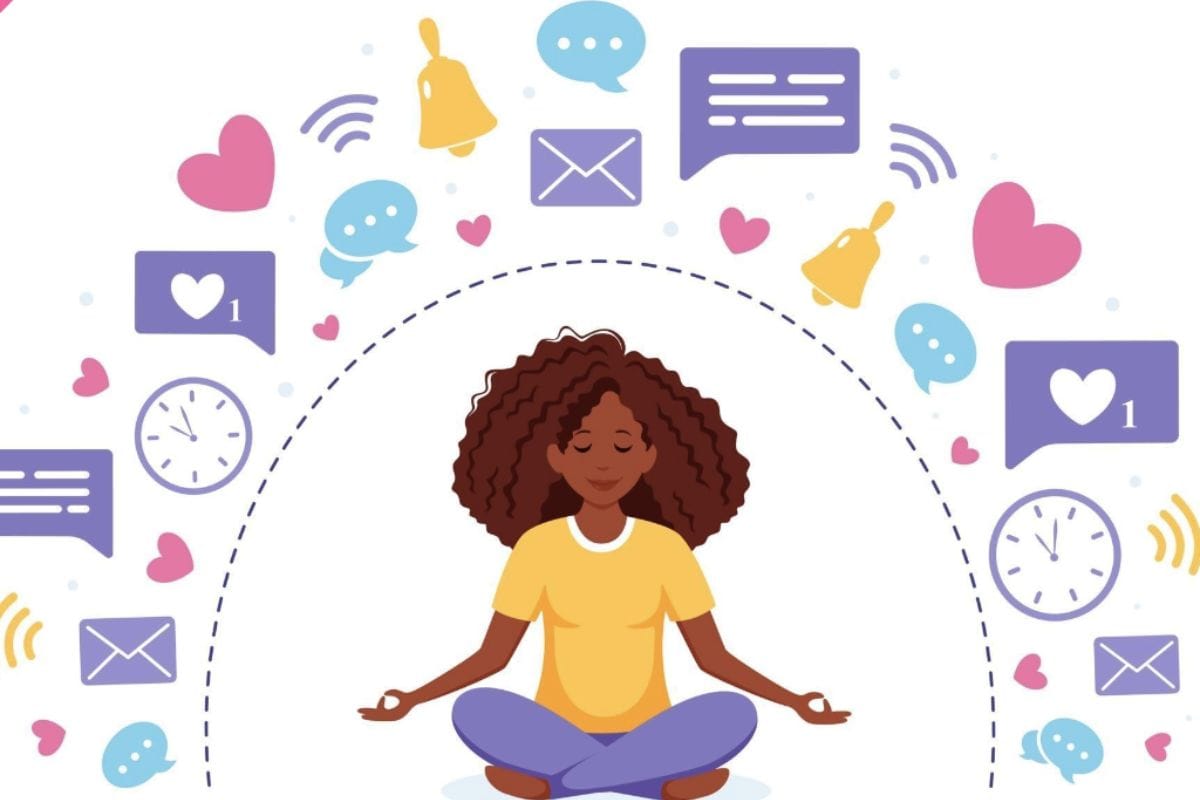
While the benefits of a digital detox are clear, it’s not always easy to unplug. Here are some common challenges and tips on how to overcome them:
- Fear of Missing Out (FOMO): The fear of missing out on important updates or events can make it hard to disconnect. Remind yourself that it’s okay to miss out sometimes and that the world won’t end if you’re not constantly connected.
- Boredom: Without the constant entertainment provided by digital devices, you might find yourself feeling bored. Use this as an opportunity to explore new hobbies or rediscover old ones. Boredom can lead to creativity and new experiences.
- Peer Pressure: Friends and family might not understand your need for a digital detox and could pressure you to stay connected. Explain your reasons and invite them to join you. Having a support system can make the process easier.
- Work Requirements: If your job requires you to be constantly connected, a digital detox can be challenging. Set boundaries with your work and try to limit screen time outside of work hours. Communicate with your employer about the importance of taking breaks.
- Habits and Addiction: Breaking the habit of constantly checking your phone can be tough. Use tools and apps that help you monitor and limit your screen time. Gradually reduce your usage instead of quitting cold turkey.
Failures and Setbacks
It’s essential to acknowledge that a digital detox journey may not always be smooth sailing. Failures are a part of the process, and setbacks are expected. Relapses into old habits, such as excessive screen time or succumbing to the allure of digital distractions, can happen. What’s crucial is not to view these moments as permanent failures but as opportunities to learn and adjust.
Understanding the triggers that lead to relapse and actively working on strategies to overcome them is a vital aspect of the digital detox journey. Whether it’s stress, boredom, or social pressures, recognizing these triggers allows individuals to develop healthier coping mechanisms.
Stories of Successful Digital Detox
Hearing about others’ experiences with digital detox can be inspiring and motivating. Here are a few stories of people who successfully unplugged and the positive changes they experienced:
Emma's Break from Work
Emma, a lawyer in a big city, was always checking her phone for work emails and updates. She decided to spend a week away from all digital devices at a quiet place in the countryside. There, she enjoyed long walks, meditation, and wrote in her journal. This break helped her feel refreshed and more balanced. When she returned to work, she started turning off her devices for a few hours every day to keep feeling good.
Zoe's Creative Tuesdays
Zoe, a graphic designer and social media influencer, felt she was losing her creative touch because she was always distracted by her phone and computer. She decided to spend every Tuesday without any gadgets. This helped her focus and she started creating better designs and posts. Her followers noticed and loved the change. This encouraged some of them to try staying off their gadgets too.
Tips for Maintaining a Balanced Digital Life
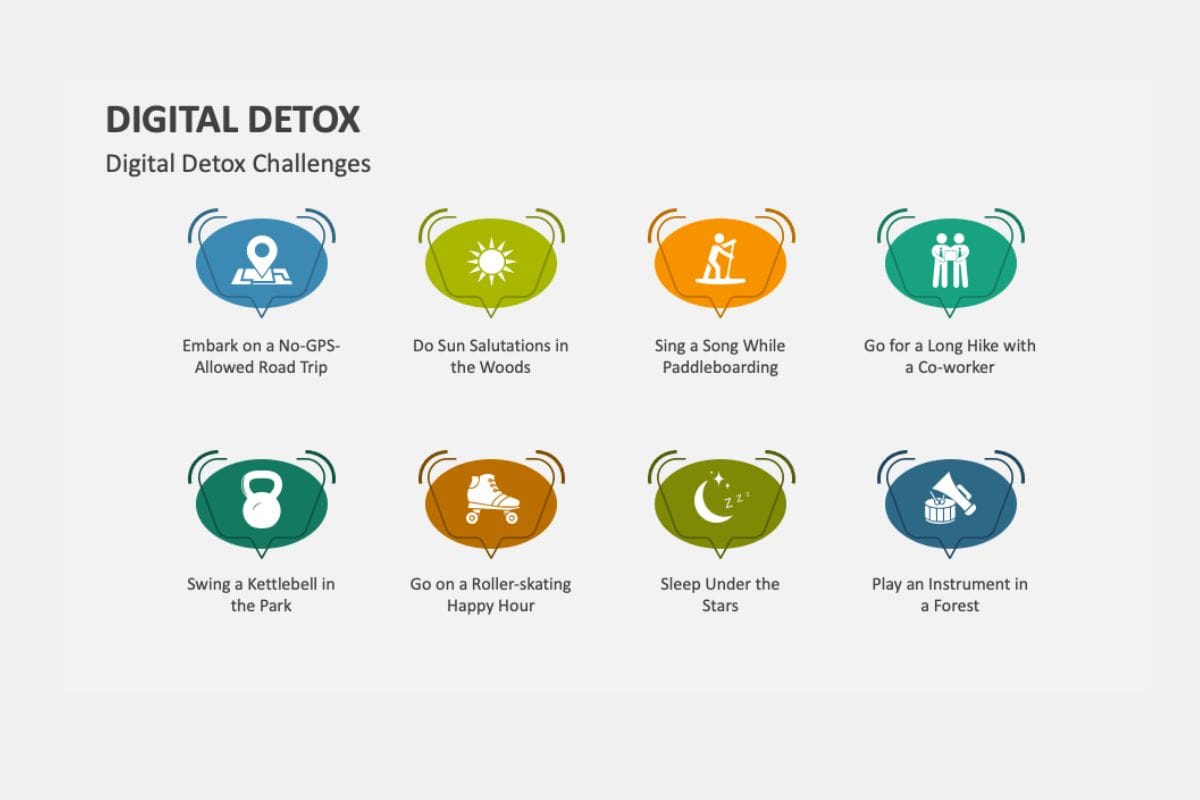
After completing a digital detox, it’s important to maintain a balanced relationship with technology. Here are some tips to help you continue enjoying the benefits of unplugging:
- Set Boundaries: Establish clear boundaries for your screen time. This could include turning off devices during meals or setting specific hours for work and leisure.
- Prioritize Real-Life Connections: Make an effort to prioritize face-to-face interactions over digital communication. Spend quality time with family and friends, and engage in activities that don’t involve screens.
- Take Regular Breaks: Incorporate regular breaks from screens throughout your day. Use techniques like the Pomodoro Technique, which involves working for 25 minutes and then taking a 5-minute break.
- Mindful Consumption: Be mindful of the content you consume. Choose quality over quantity and avoid mindless scrolling. Follow accounts and pages that inspire and uplift you.
- Stay Active: Incorporate physical activity into your daily routine. Whether it’s a workout, a walk, or a hobby that involves movement, staying active helps counterbalance the time spent on screens.
Conclusion
In our hyperconnected world, taking the time to unplug and enjoy a digital detox is essential for our mental and physical well-being. By setting clear goals, creating tech-free zones, and engaging in offline activities, we can rediscover the joys of life beyond our screens. The benefits of reduced stress, improved relationships, and greater mindfulness are well worth the effort. Remember, it’s not about completely eliminating technology but finding a healthy balance that enhances our lives. So, take that first step towards a digital detox and experience the positive changes it brings.
Also Read:
